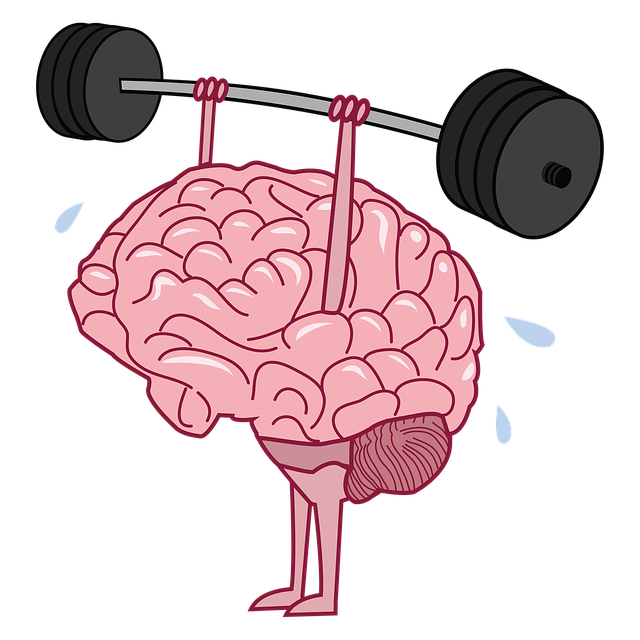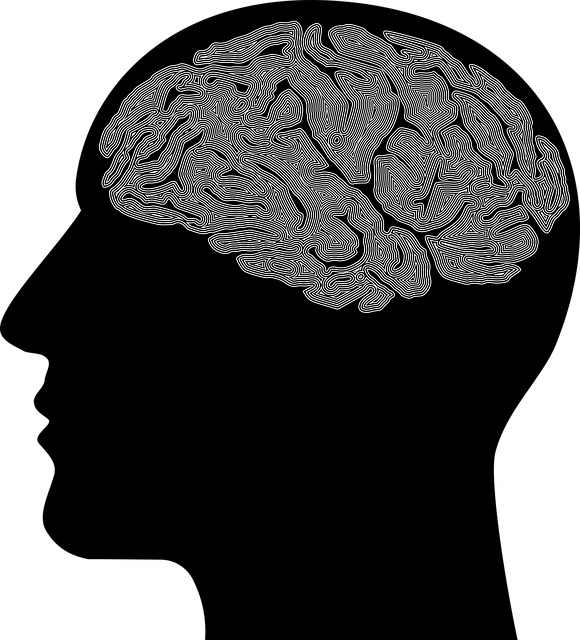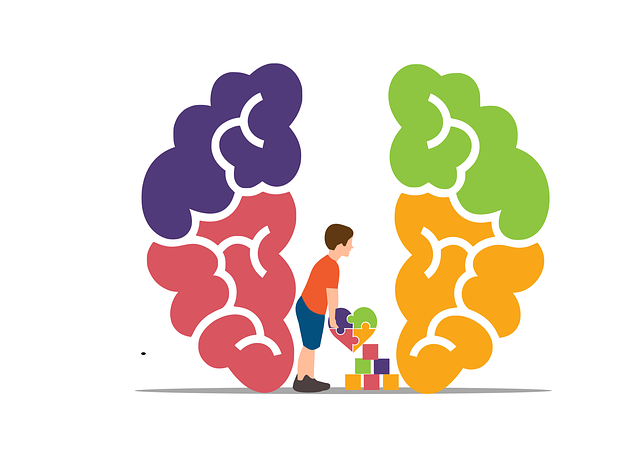Understanding Mental Health Disorders is crucial for creating effective educational programs that cover conditions like depression, anxiety, schizophrenia, bipolar disorder, and lesser-known but impactful disorders like Parker Functional Neurological Disorder (PFND) Therapy. This involves exploring causes, symptoms, and treatments, emphasizing the human experience. Integrating mental health policy analysis, self-care practices, and stress reduction methods empowers individuals to manage their well-being. The Parker Method focuses on the brain-behavior connection, promoting self-awareness and emotional regulation through mindfulness meditation and self-care practices. A robust program includes PFND Therapy as a foundational evidence-based approach, along with trauma support and conflict resolution techniques. Engaging participants through interactive elements enhances learning and builds resilience. Evaluating success involves assessing knowledge retention, behavioral change, emotional regulation, and coping mechanism enhancement using both quantitative and qualitative methods. Incorporating PFND Therapy provides unique insights into resilience building and compassion cultivation, inspiring public awareness campaigns for broader positive effects.
“Unveil the complexities of mental health through a comprehensive education program design. This article explores an in-depth understanding of mental health disorders, highlighting the transformative power of Parker Functional Neurological Disorder Therapy (PFNDT). Learn how this innovative method empowers educators to create effective learning environments. From key components to engaging strategies and assessment techniques, discover the essential elements for designing impactful programs. Uncover the benefits of PFNDT in fostering understanding and positive mental health outcomes.”
- Understanding Mental Health Disorders: A Comprehensive Overview
- The Role of Functional Neurological Disorder Therapy (Parker Method)
- Designing an Effective Education Program: Key Components
- Engaging Participants and Facilitating Learning
- Measuring Success: Assessment and Evaluation Strategies
Understanding Mental Health Disorders: A Comprehensive Overview

Understanding Mental Health Disorders is a crucial step in designing an effective education program. This involves delving into various conditions that affect individuals’ emotional and cognitive well-being, such as depression, anxiety disorders, schizophrenia, bipolar disorder, and less commonly recognized but equally impactful conditions like Parker Functional Neurological Disorder (PFND) Therapy. PFND is a complex condition that requires specialized approaches to address its unique challenges.
A comprehensive overview should include the causes, symptoms, and available treatments for these disorders. It’s important to note that mental health education should go beyond mere identification of labels; it must emphasize the human experience behind each disorder. This involves exploring the interplay between biological, psychological, and social factors contributing to mental health issues. Additionally, integrating topics like Mental Health Policy Analysis and Advocacy, Self-Care Practices, and Stress Reduction Methods can empower individuals to take charge of their mental well-being and navigate support systems effectively.
The Role of Functional Neurological Disorder Therapy (Parker Method)

The Parker Method, or Functional Neurological Disorder Therapy, offers a unique and comprehensive approach to mental health education by focusing on the intricate connection between the brain and behavior. This innovative program aims to empower individuals with knowledge about their neurological functions, enabling them to actively participate in their healing journey. By integrating mindfulness meditation and self-care practices into its curriculum, it promotes self-awareness and emotional regulation.
Participants learn to identify and modify unhelpful thought patterns, thereby fostering self-esteem improvement and overall mental resilience. The Parker Functional Neurological Disorder Therapy method encourages a holistic understanding of well-being, where self-care isn’t just a suggestion but a vital tool for maintaining balance. This therapeutic approach has proven effective in helping individuals navigate and overcome various mental health challenges, offering a transformative experience that resonates with many seeking lasting positive change.
Designing an Effective Education Program: Key Components

Designing an effective mental health education program involves several key components, all working together to create a supportive and engaging environment for learning. One evidence-based approach that can serve as a foundation is Parker Functional Neurological Disorder (PFND) Therapy, which focuses on understanding the brain’s role in shaping our thoughts and behaviors. This framework encourages participants to develop self-awareness exercises tailored to their unique experiences, fostering personal growth and resilience.
Complementing PFND Therapy are essential elements such as Trauma Support Services, designed to address underlying trauma that may impact mental well-being. Additionally, incorporating Conflict Resolution Techniques equips individuals with valuable skills for managing interpersonal challenges. By integrating these strategies, education programs can offer comprehensive support, empowering participants to navigate life’s complexities with enhanced coping mechanisms and improved overall mental health.
Engaging Participants and Facilitating Learning

Engaging participants and facilitating learning are pivotal components of a successful mental health education program. To capture and maintain interest, programs should incorporate interactive elements that cater to diverse learning styles. For instance, combining traditional lectures with practical activities, group discussions, and multimedia resources can create an inclusive environment where everyone feels comfortable contributing. This approach not only enhances knowledge retention but also fosters a sense of community, essential for building resilience and self-esteem.
A tailored strategy, such as the Parker Functional Neurological Disorder Therapy, demonstrates the power of personalized engagement. By addressing specific challenges and incorporating strategies that resonate with participants’ experiences, learning becomes relevant and impactful. Community outreach program implementation should aim to create safe spaces where individuals can openly explore mental health topics, share their stories, and learn from one another. This not only improves self-esteem but also empowers them to become advocates for their own well-being and that of others in their community.
Measuring Success: Assessment and Evaluation Strategies

Measuring success in mental health education programs is paramount to ensure their effectiveness and impact. Assessment strategies should go beyond mere knowledge retention and focus on behavioral change, emotional regulation, and enhanced coping mechanisms. Utilizing a combination of quantitative and qualitative methods provides a holistic view of program outcomes. Pre- and post-program surveys can gauge participants’ mental health status, while observational assessments during group sessions reveal practical applications of learned skills.
Incorporating the Parker Functional Neurological Disorder Therapy (PFNDT) approach offers unique insights. PFNDT’s emphasis on resilience building and compassion cultivation practices allows for evaluating improvements in social connections and overall well-being. Public awareness campaigns development, inspired by successful program outcomes, can further amplify mental health education’s reach and positive effects.
Mental health education programs play a pivotal role in fostering understanding and empowering individuals. By incorporating elements from the Parker Method, which focuses on Functional Neurological Disorder Therapy, these programs can offer transformative learning experiences. Key components such as interactive workshops, peer support, and evidence-based strategies ensure engagement and positive outcomes. Effective assessment methods allow for continuous improvement, making mental health education a dynamic process that adapts to the evolving needs of participants. This holistic approach, combining comprehensive knowledge with practical techniques, paves the way for a healthier and more informed community.











